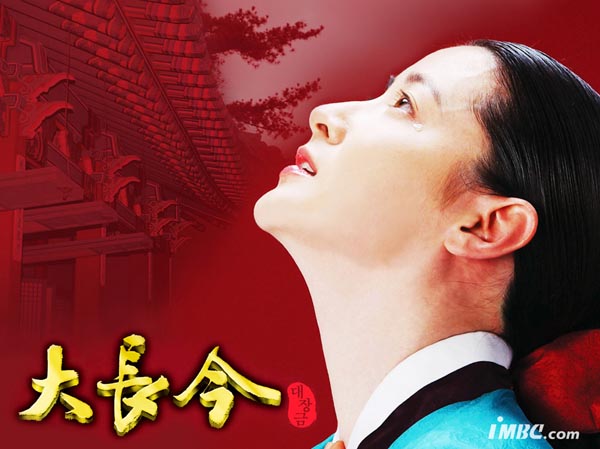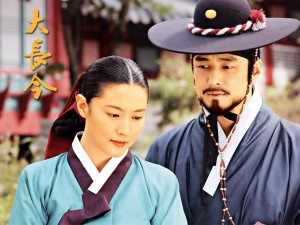 The dust surrounding the merry media circus that has been MBC‘s almost psychiatric fixation with the long-proposed Dae Jang Geum 2 seems to have finally settled down. The word is out: after something like 12987242 postponements, dismissals and resurrections to beat a phoenix on steroids, the station has finally managed to swing actress Lee Young-ae their way, gotten a synopsis out for (not quite a script, but better than mere adoration of a past series) and is gunning for an October broadcast.
The dust surrounding the merry media circus that has been MBC‘s almost psychiatric fixation with the long-proposed Dae Jang Geum 2 seems to have finally settled down. The word is out: after something like 12987242 postponements, dismissals and resurrections to beat a phoenix on steroids, the station has finally managed to swing actress Lee Young-ae their way, gotten a synopsis out for (not quite a script, but better than mere adoration of a past series) and is gunning for an October broadcast.
While issues of casting (what about the perennially sexy Ji Jin-hee? Is he not invited to this nostalgia party? Sad face) and scripting may not be set in stone yet, it seems like this sequel/remake/fit of self-indulgence is more or less set to happen before the curtain closes on the year 2014. Besides making me feel somewhat wistful for the good old days of protracted, desirous shots of artfully prepared and presented dishes and soups, this particular MBC obsession has provoked more than just a quizzical eyebrow from the general public and the international fandom.
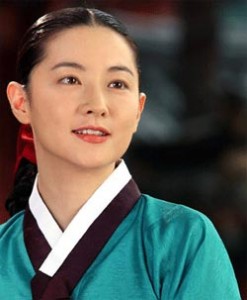 For those of us who have only recently had our social lives siphoned away by the wonderful world of everything Hallyu and call GOT7 oppas (oh, first love!), Dae Jang Geum may not ring the bells of childhood nostalgia that it does for me. The original series aired on MBC in (gasp!) 2003, sparking off the most insane craze in Asia for kimchi, hanboks and whatever magic potion which could offer the masses skin like Lee Young-ae’s. When we speak of the beginnings of the Hallyu Wave as we in the international fandom know it, Jang-geum and Lord Min are its heralds.
For those of us who have only recently had our social lives siphoned away by the wonderful world of everything Hallyu and call GOT7 oppas (oh, first love!), Dae Jang Geum may not ring the bells of childhood nostalgia that it does for me. The original series aired on MBC in (gasp!) 2003, sparking off the most insane craze in Asia for kimchi, hanboks and whatever magic potion which could offer the masses skin like Lee Young-ae’s. When we speak of the beginnings of the Hallyu Wave as we in the international fandom know it, Jang-geum and Lord Min are its heralds.
Dae Jang Geum the series is thus often spoken of reverently — it’s one of the classics, one of those elevated and untouchable specimens of programming we put up on the pedestals of history and look back on fondly. No surprise, then, that the reactions of the public to news of a sequel have been largely of horror and fear. Why touch a good thing! It ended well and I’ll always like it, so leave it just as it was!
Frankly, I’m on the side of the detractors for this one for quite a number of reasons, and I believe that these reasons are actually founded on past experience.
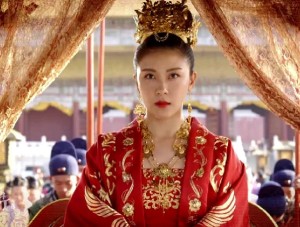 Considering the place of Dae Jang Geum in K-Drama history, it might indeed be better to leave its cultural legacy alone. MBC hasn’t had much luck popularity-wise with dramas featuring contemporary scenarios (Miss Korea recently lost out to ratings juggernaut You Who Came From The Stars, and Medical Top Team was…well). Their current ratings winner, in the very timeslot that Dae Jang Geum 2 is slated to air in, is the star-studded sageuk Empress Ki.
Considering the place of Dae Jang Geum in K-Drama history, it might indeed be better to leave its cultural legacy alone. MBC hasn’t had much luck popularity-wise with dramas featuring contemporary scenarios (Miss Korea recently lost out to ratings juggernaut You Who Came From The Stars, and Medical Top Team was…well). Their current ratings winner, in the very timeslot that Dae Jang Geum 2 is slated to air in, is the star-studded sageuk Empress Ki.
When seen through these lenses, one can reasonably infer that the higher-ups at MBC might, quite justifiably, want to go for another sageuk. Might as well do what do you well again, no? But, being MBC — this is also the station that had Kim Nam-joo share a Daesang — they don’t want to come up with fresh material. In fact, Unprecedented, a production with a fresh premise surrounding King Taejong (Sejong the Great’s father) and his advisor, was jettisoned in favour of the Dae Jang Geum sequel. Stick to what we know, something that we know worked last time, so it should work this time — right?
No, no, no.
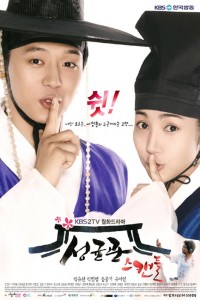 First of all, it has actually been 11 years since Dae Jang Geum first aired. Since then, the series has been immortalised as one of the pioneers of the Hallyu wave, gender-bending sageuks became incredibly popular, people these days like their aliens hot. In other words, viewership preferences have changed.
First of all, it has actually been 11 years since Dae Jang Geum first aired. Since then, the series has been immortalised as one of the pioneers of the Hallyu wave, gender-bending sageuks became incredibly popular, people these days like their aliens hot. In other words, viewership preferences have changed.
The original series was a classic, and classics hold a special place in our hearts because of the nostalgia they evoke — a longing for a certain time, certain memories, certain events that brought about within us certain feelings. We revisit these to relive those times.The time for Dae Jang Geum was 2003, and 2003 ended. The world moved on, and MBC should really move on with it. Give us something new!
The fates of drama sequels gone by should also offer a cautionary tale. Many a popular drama has had its cultural legacy suffer owing to the unsatisfactory sequels that stations, eager for a second taste of ratings success, put out in rapid succession. MBC’s own Princess Hours was a pop-culture phenomenon that had teenage girls all over Asia going gaga (me too, okay) over the pretty prince galore, and made overnight superstars of Joo Ji-hoon and Yoon Eun-hye. However, despite the runaway success of its predecessor, the sequel to Princess Hours, Goong S, flopped in the ratings. Take a cue, MBC?
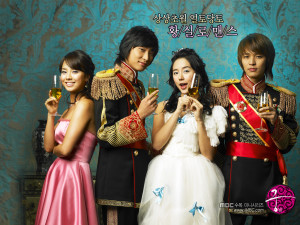 What makes this particular failure even more stark is that Goong S basically took the exact same formulaic approach as Princess Hours with its narrative, with the only tweak being that the commoner entering the palace was male rather than female — and yet it failed. People were simply tired of the same old thing. The modern-day fairytale drama lost its appeal in take two.
What makes this particular failure even more stark is that Goong S basically took the exact same formulaic approach as Princess Hours with its narrative, with the only tweak being that the commoner entering the palace was male rather than female — and yet it failed. People were simply tired of the same old thing. The modern-day fairytale drama lost its appeal in take two.
Back to Dae Jang Geum. The original series revolved around an intelligent, principled and morally upright palace maid who eventually finds her calling as a physician — in every way a classic, uplifting journey of discovery. The appeal of the story had been Jang-geum’s astounding willpower to plow through it all and achieve her virtue-driven goals, with an attractive and equally dedicated high-ranked official to pave the way out of (what else?) true love. It was, at its core, a pure and simple journey of one woman pursuing her dreams, and ended with their fulfillment and the promise of even greater potential to build on them. The ending was picture-perfect. Audiences were accordingly enthralled.
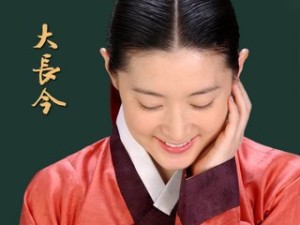 What would writer Kim Young-hyun want to build on with such a nicely tied-up curtain call eleven years ago? Why, for that matter, would anyone want to risk tainting the legacy of a series that has rightfully earned its place in the Hallyu pantheon of classics to satisfy a station’s aching need for ratings security? Should a writer who wrote a drama as brilliant as Tree with Deep Roots really ditch her own project (Unprecedented) to satisfy channel demands and thus hinder the production of fresh material that is created for a particular generation and can challenge as well as inspire us in the now?
What would writer Kim Young-hyun want to build on with such a nicely tied-up curtain call eleven years ago? Why, for that matter, would anyone want to risk tainting the legacy of a series that has rightfully earned its place in the Hallyu pantheon of classics to satisfy a station’s aching need for ratings security? Should a writer who wrote a drama as brilliant as Tree with Deep Roots really ditch her own project (Unprecedented) to satisfy channel demands and thus hinder the production of fresh material that is created for a particular generation and can challenge as well as inspire us in the now?
Call me idealistic, but I think not. There’s some seriously shady backdoor manoeuvring going on that I don’t know a thing about, but I do believe that the producers of television programming have a responsibility to put out generationally relevant and edifying programming. Dae Jang Geum did it for us in 2003; give us something else for 2014, oh drama gods.
(News 1, Sports Seoul, Images via KBS, MBC)
